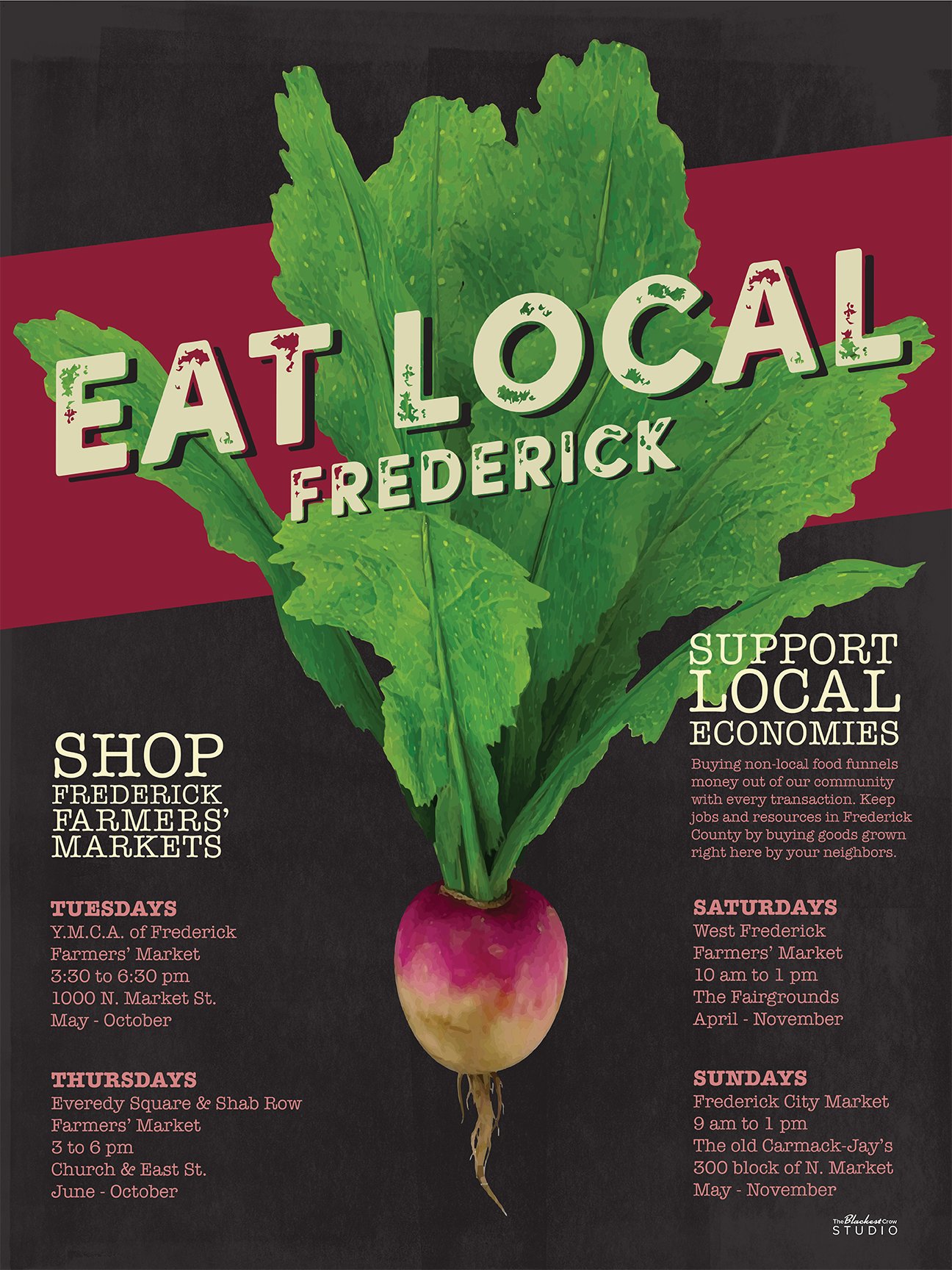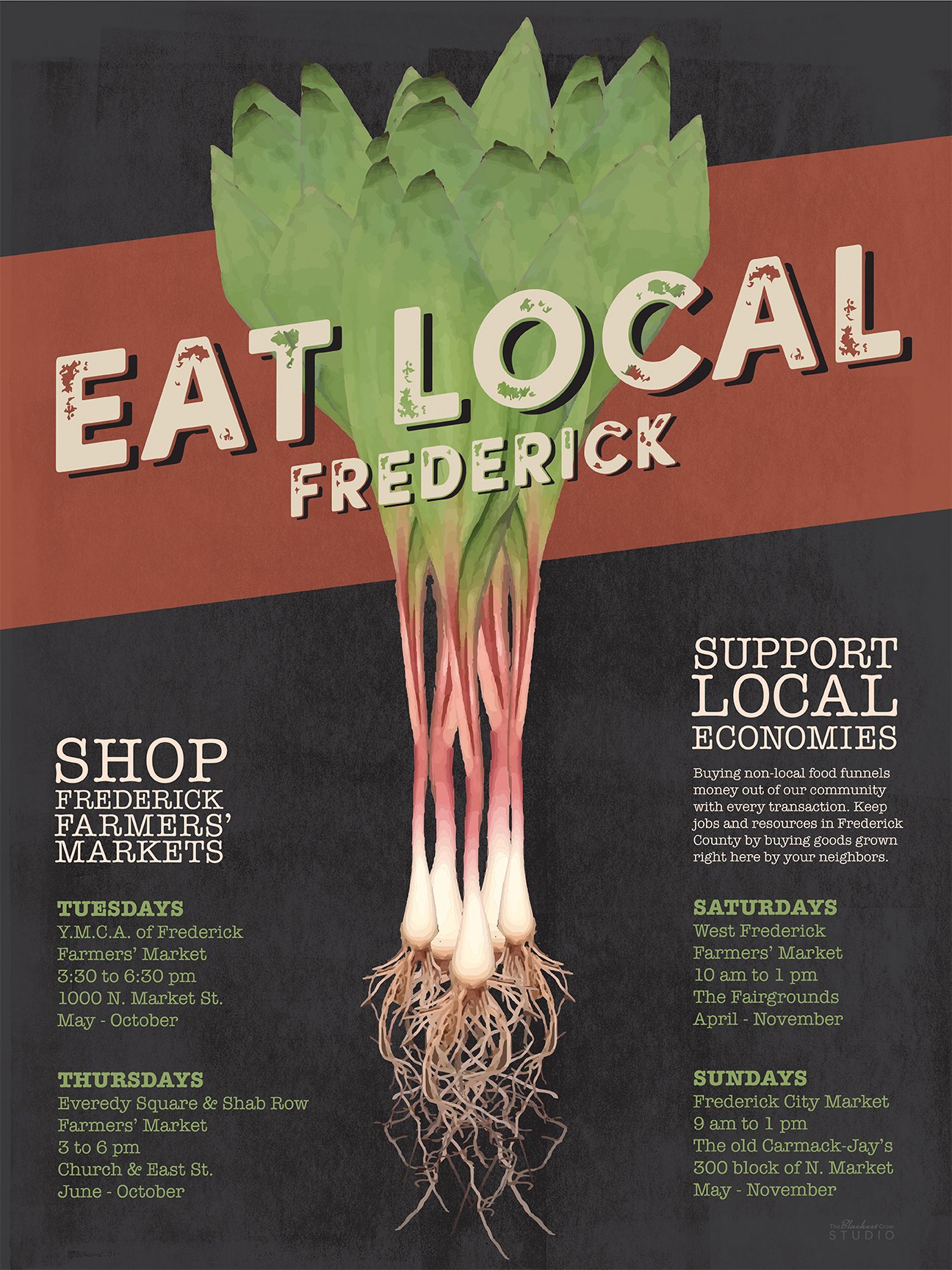
Build Your Local Pantry, Herbal Apothecary, & Community. Reclaim the Timeless Skills of Self-Reliance.
Our hands-on workshops teach homesteading skills rooted in Appalachian foodways - like canning, fermentation, DIY natural skincare, and seasonal cooking - to help you eat locally, live seasonally, and take your health into your own hands. All while supporting local farmers and strengthening our local economy.
Want to preserve the harvest, boost your gut health, or ditch store-bought skincare?
Join our hands-on classes in cooking, canning, fermentation, and herbal folk remedies—each one’s designed to help you live healthier, save money, and reconnect with the local food community. Classes held at The Common Market, 7th Street, Frederick, MD.
Spots are limited—reserve yours before they fill up!
Upcoming Workshops!
Some of Our Past Offerings
Learn how to eat locally year-round with our hands-on classes.
Sign up for workshop alerts
*
Sign up for workshop alerts *
About Eat Local Frederick
Eat Local Frederick helps people reconnect with their food, their neighbors, and the land—through hands-on classes, local adventures, and seasonal living.
Founded in 2016, we’re building a growing community of people learning to can, ferment, garden, and craft natural remedies using local ingredients. From building your pantry to preserving Appalachian foodways, we’re here to help you eat fresher, live healthier, and gain timeless skills that nourish you for a lifetime.
Our workshops are designed to preserve traditional skills, support local farmers, and promote a healthier, more self-sufficient way of life.
Whether you're looking to reduce your grocery bill, ditch synthetic skincare, or simply eat with the seasons, you're in the right place.
Photo credit Sean Reel.About Your Instructor
These classes are led by Katie Powderly, founder of Eat Local Frederick. A longtime advocate for local food systems, seasonal living, and cultural heritage, Katie brings over 20 years of hands-on experience in homesteading, fermentation, gardening, folk herbalism, natural food preparation, and music rooted in tradition and place.
Since founding Eat Local Frederick as a civic pride campaign in 2016, Katie has been helping people reconnect with their food, their neighbors, and the land through practical, joyful workshops. Whether teaching how to can tomatoes, craft a healing balm, simmer nourishing bone broth, or share songs that carry Appalachian stories forward, her mission is to empower others with timeless skills that build resilience, nourish the body, and strengthen community.
Katie believes that preserving the traditions that matter - whether foodways or folk songs - is a powerful way to reclaim independence, celebrate abundance, and ensure that the cultural roots of Appalachia and beyond continue to thrive for generations to come.
Answers to Questions You Might Have:
-
Foodways are the cultural, social, and economic practices surrounding the production, preparation, consumption, and sharing of food within a particular community.
Here in Central Appalachia, foodways are deeply tied to the land, seasonal rhythms, and traditions that have been passed down for generations. From heirloom recipes and seed-saving to preserving harvests for the winter, Appalachian foodways tell the story of resilience, resourcefulness, and connection to place. -
Production: How food is grown, harvested, and sourced. (Mountain gardens, foraging wild edibles like morels, ramps or pawpaws, and small-scale farming rooted in biodiversity.)
Preparation: The methods and recipes used to cook and prepare food. (Cast-iron cooking, slow simmered beans, cornbread, chow chow, and family recipes preserved through oral tradition.)
Consumption: The habits, customs, and rituals associated with eating and sharing meals. (Communal meals, Sunday suppers, and seasonal feasts that bring people together.)
Preservation: Techniques for storing and preserving food, such as canning. (Canning green beans, fermenting kraut, curing meats, and other practices that sustain families year-round.)
Marketing: The buying and selling of food products. (Bartering and farmers’ markets that keep food systems local and community-centered.)
Cultural Significance: The role of food in ceremonies, rituals, storytelling, and community gatherings. (Food at the heart of storytelling, gospel sings, harvest festivals, and gatherings on the front porch.)
Social & Economic Factors: How foodways are shaped by economic conditions, social structures, and political contexts. (A tradition shaped by mountain economies, kinship networks, and access to the land.)
-
Cultural Identity: Foodways are a powerful way to express and preserve cultural identity, connecting people to their ethnic, religious, and family heritage. Appalachian foodways preserve a sense of mountain heritage and honor ancestors who built lives from the land.
Historical Understanding: They offer a window into the past, revealing how people lived, their relationship with the environment, and their social structures. Appalachian reveal how Appalachian people adapted to scarcity, geography, and changing times.
Community Connection: Shared meals and food traditions foster a sense of community and belonging. Appalachian food traditions strengthen bonds between neighbors, families, and generations.
Interdisciplinary Study: The study of foodways intersects with various fields, including anthropology, history, sociology, and cultural studies. Appalachian foodways intertwine with history, music, agriculture, ecology, and cultural resilience.
Shop our (almost)
10-Year Anniversary
Frederick Farmers’ Market Poster Collection.
Support local farmers and brighten your kitchen with seasonal art. Originally launched in 2016, this collection celebrates Frederick’s vibrant local food scene and honors the farmers’ markets that make it thrive.































